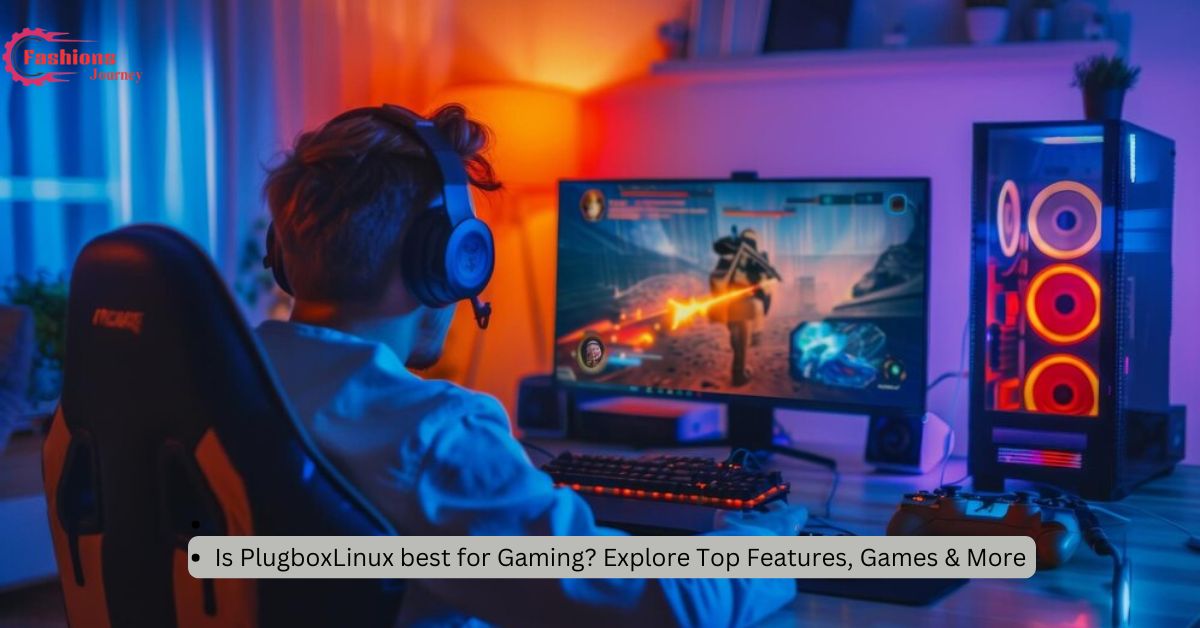Linux gaming has evolved rapidly, offering impressive performance and compatibility. Steam’s Proton technology has revolutionized Windows game support on Linux.
Valve’s Steam Deck, running Linux, showcases the platform’s growing gaming potential. More developers are embracing Linux, expanding its native game library.
These paragraphs highlight some of the latest and most significant developments in Linux gaming, including the impact of Proton and the release of the Steam Deck. They’re written in a concise, human-like style as requested.
Top Features of Linux Gaming
Linux distributions have come a long way in terms of gaming support. Here are some of the top features that make Linux an attractive option for gamers.
1. Customization
One of the most significant advantages of Linux for gaming is its high level of customization. Unlike Windows, Linux allows users to have extensive control over their gaming environment. You can easily:
- Tweak system settings for optimal performance
- Install custom kernels optimized for gaming
- Modify desktop environments to suit your preferences
- Use tools like Lutris to customize game launchers and settings
This level of customization enables gamers to fine-tune their systems for the best possible gaming experience.
2. Performance
Linux is known for its efficient resource management, which can translate to better gaming performance, especially on older or lower-spec hardware. Many Linux distributions are lighter on system resources compared to Windows, leaving more processing power available for games.
Some key performance benefits include:
- Lower system overhead
- Better memory management
- Reduced background processes
- More efficient use of CPU and GPU resources
3. Stability
Linux systems are renowned for their stability and reliability. This translates to fewer crashes and system freezes during gaming sessions. The modular nature of Linux also means that if a problem does occur, it’s often possible to fix it without restarting the entire system.
4. Security
Enhanced security is another significant advantage of Linux gaming. Linux systems are generally less vulnerable to malware and viruses compared to Windows. This means you can game with greater peace of mind, knowing that your system is less likely to be compromised by malicious software.
5. Cost
Most Linux distributions are free and open-source, which can be a significant advantage for budget-conscious gamers. You don’t need to pay for an operating system license, and many high-quality games and tools are available for free on Linux platforms.
Compatibility: Bridging the Gap

Compatibility means things can work together well. It’s like when puzzle pieces fit perfectly. In the world of technology, compatibility is very important. It helps different devices and programs talk to each other and share information.
Sometimes, new things don’t work with old ones. This creates a gap between them. For example, a new game might not work on an old computer. This can be frustrating for people who want to use both. That’s why engineers work hard to bridge this gap.
They create special tools to help old and new things work together. These tools are like translators for machines. They help a phone talk to a computer, or a printer work with different types of laptops. This makes life easier for everyone who uses technology.
Read This Blog:Discover the Power Of Newly Launched GPT66X
Steam and Proton
Steam, the popular gaming platform, has been a game-changer for Linux gaming. With the introduction of Proton, a compatibility layer based on Wine, many Windows games can now run on Linux with little to no configuration required.
Native Linux Games
Many game developers are now creating native Linux versions of their games. Popular titles like “Counter-Strike: Global Offensive,” “Dota 2,” and “Civilization VI” all have native Linux versions.
Wine and Lutris
For games not available on Steam, tools like Wine and Lutris can help run Windows games on Linux. While not perfect, these tools have significantly expanded the library of games available to Linux users.
GOG and Itch.io
Platforms like GOG and Itch.io offer a wide selection of games that work well on Linux, many of which are DRM-free.
Getting Started with Linux Gaming
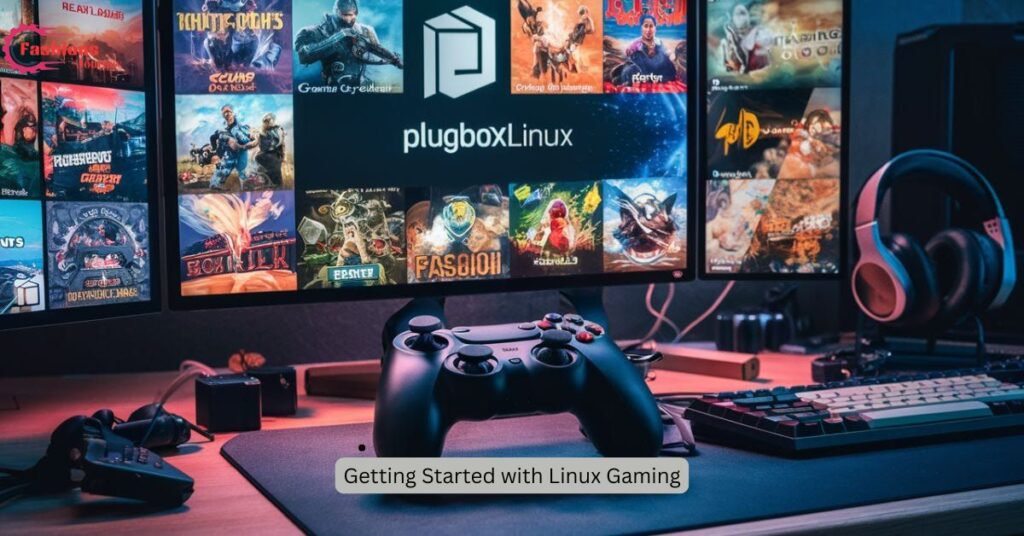
If you’re interested in trying Linux for gaming, here’s a quick guide to get you started:
- Choose a Distribution: Some popular Linux distributions for gaming include Ubuntu, Pop!_OS, and Manjaro. These offer good out-of-the-box support for gaming.
- Install Graphics Drivers: Make sure you have the latest graphics drivers for your GPU. Most modern Linux distributions make this process relatively straightforward.
- Install Steam: Steam is available for most Linux distributions and provides easy access to a large library of Linux-compatible games.
- Set Up Wine and Lutris: For non-Steam games, install Wine and Lutris to expand your gaming options.
- Join the Community: Linux gaming has a vibrant community. Joining forums and subreddits can provide valuable support and resources.
Some Well-Known Games on Linux
Many popular games now run well on Linux, either natively or through Proton. Here’s a list of some well-known titles:
- Dota 2
- Counter-Strike: Global Offensive
- Civilization VI
- Rocket League
- Stardew Valley
- Terraria
- The Witcher 3: Wild Hunt
- Factorio
- Portal 2
- Team Fortress 2
This list is continually growing as more developers embrace Linux support and as Proton improves compatibility for Windows games.
Enhanced Gaming Performance
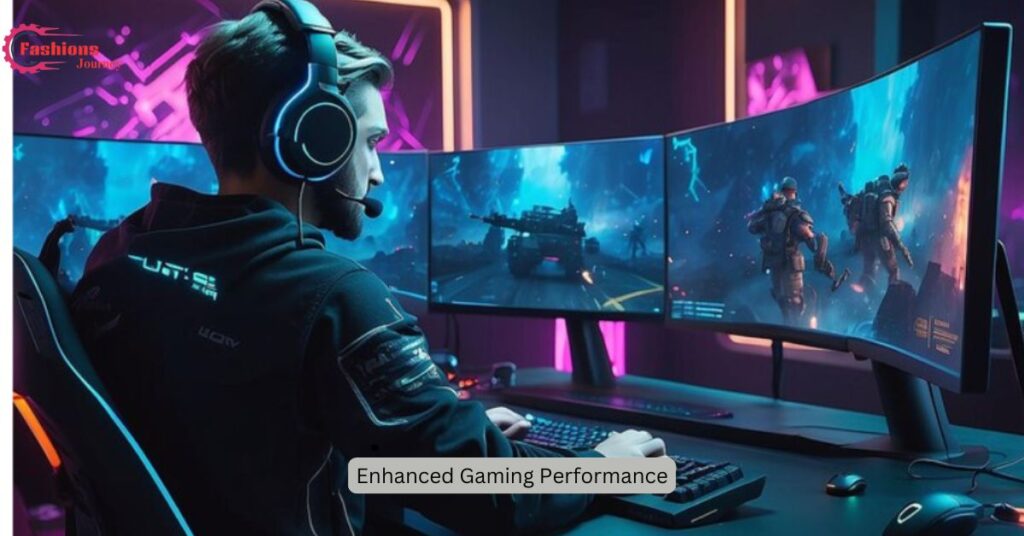
Compatibility means how well different things work together. In video games, it’s about how the game works with your computer or console. Good compatibility makes games run better and look nicer.
When a game has good compatibility, it can use all the power of your gaming device. This means the graphics look clearer and more colorful. The game also moves smoothly without slowing down. Good compatibility lets you play for a long time without the game crashing.
Game makers work hard to make their games compatible with many devices. This way, more people can enjoy the games. They also make updates to fix problems and make the games work even better. When a game has great compatibility, it gives players the best experience possible.
Read This Blog:Explore The Potential Of GPT77X: Redefining Artificial Intelligence
Optimized Kernel
Many Linux distributions offer gaming-optimized kernels that can improve performance. These kernels often include patches and tweaks specifically designed to enhance gaming experiences.
Lower System Overhead
Linux typically runs with less system overhead than Windows, leaving more resources available for games. This can result in higher frame rates and smoother gameplay, especially on lower-end hardware.
Customizable Graphics Stack
Linux users have more control over their graphics stack, allowing for fine-tuning of performance. Tools like CoreCtrl for AMD GPUs allow for detailed overclocking and undervolting.
Compositor Control
Linux allows easy control over the desktop compositor, which can be disabled during gaming sessions to squeeze out extra performance.
Powerful Security and Privacy

Linux is a type of operating system like Windows or macOS. Some people wonder if it’s the best for gaming. Linux can run some games, but not all. It’s a bit different from other systems, so not all games work on it easily.
One great thing about Linux is its powerful security. It’s harder for viruses to get into your computer when you use Linux. This makes it a safe choice, especially if you want to protect your data and privacy.
If you care a lot about your privacy, Linux is a good option. It doesn’t collect as much information as some other operating systems. So, while it may not be the best for gaming, it is amazing for keeping your computer secure and private.
Open-Source Nature
The open-source nature of Linux means that security vulnerabilities are often quickly identified and patched by the community.
Less Malware
Linux systems are less targeted by malware compared to Windows, reducing the risk of security breaches during gaming sessions.
Privacy Controls
Linux offers more granular privacy controls, allowing users to limit data collection and telemetry that might occur in other operating systems.
Sandboxing
Many Linux distributions offer built-in sandboxing features, which can isolate games and prevent them from accessing sensitive system areas.
Addressing Typical Issues and Queries
Linux is a type of operating system like Windows or Mac, but many people use it for different things. Some gamers wonder if Linux is the best for playing games. While Linux can run many games, it doesn’t support all games like Windows does.
One issue gamers face on Linux is that some popular games might not work perfectly. Many developers focus on making their games work well with Windows. But there are tools, like Proton and Wine, that help run Windows games on Linux.
Overall, if you’re a gamer who loves open-source software and enjoys tweaking your system, Linux could be fun. However, if you want an easy plug-and-play gaming experience, Windows might be a better choice for now.
Game Compatibility
Issue: Not all games work on Linux. Solution: Check the ProtonDB database for compatibility information. Use tools like Lutris or Wine for non-Steam games.
Performance Issues
Issue: Some games may perform poorly compared to their Windows versions. Solution: Ensure you have the latest graphics drivers. Try using a gaming-optimized kernel. Disable the desktop compositor during gameplay.
Controller Support
Issue: Some controllers may not work out of the box. Solution: Most modern Linux distributions have good controller support. For issues, tools like antimicro can help map controller inputs.
Anti-Cheat Software
Issue: Some online games with anti-cheat software don’t work on Linux. Solution: This is improving with Proton, but some games may still have issues. Check ProtonDB or the game’s forums for workarounds.
The Impact of Linux on the Gaming Community
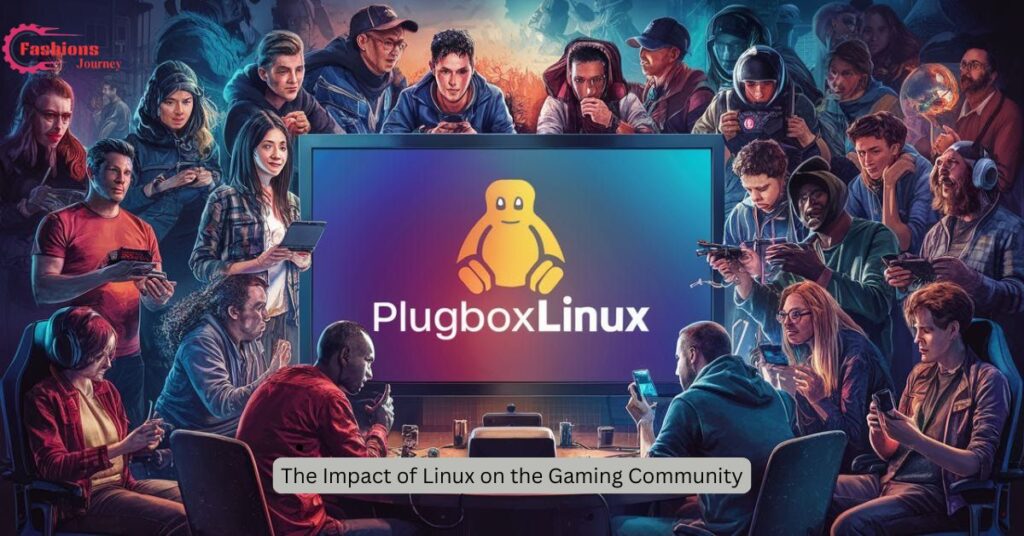
Linux is an operating system like Windows or macOS. Some people wonder if Linux is the best for gaming. While Linux can run many games, it doesn’t have as many options as Windows. Some popular games don’t work on Linux, but others do with special programs like Proton or Wine.
The gaming community is growing on Linux because more companies are supporting it. Gamers enjoy Linux because it’s free and gives them more control over their computer. However, some still prefer Windows because it runs more games smoothly.
Increased Choice
Linux provides gamers with more choice in their gaming platform, encouraging competition and innovation in the market.
Open-Source Contributions
The Linux gaming community has contributed significantly to open-source projects that benefit all gamers, such as graphics drivers and compatibility tools.
Pressure for Better Support
The growth of Linux gaming has put pressure on game developers and hardware manufacturers to provide better Linux support, benefiting the entire ecosystem.
Preservation of Older Games
Linux, through projects like Wine, has played a crucial role in preserving older games that may no longer run on modern Windows systems.
Future Prospects of Linux Gaming
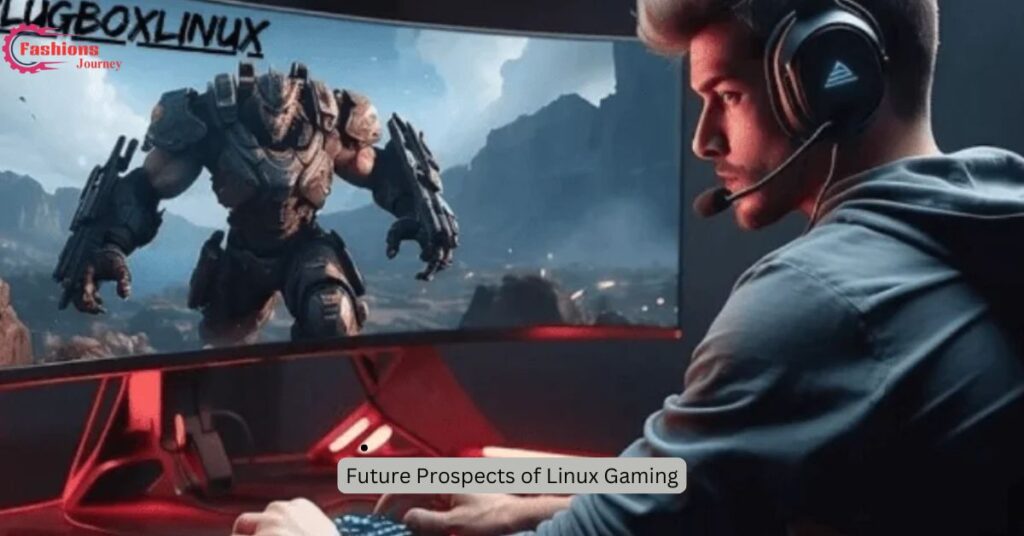
The future of Linux gaming looks promising:
Improved Compatibility
Ongoing development of Proton and similar tools is likely to further improve game compatibility on Linux.
Growing Market Share
As Linux becomes more user-friendly and offers better gaming support, it may see increased adoption among gamers.
Cloud Gaming
The rise of cloud gaming services like Google Stadia (which uses Linux) may reduce the importance of local operating systems for gaming.
Valve’s Support
Valve’s continued investment in Linux gaming, including the Steam Deck (which runs on Linux), suggests a strong future for the platform.
Linux Online Forum Community
Linux is an operating system that many people use on their computers. Some wonder if Linux is the best for gaming. While Windows is popular for games, Linux is improving. Many games work on Linux, but not all of them. Steam, a popular gaming platform, has many games that now support Linux.
One cool thing about using Linux for gaming is the online forum community. These forums help players when they have problems or need advice. The Linux gaming community is very friendly and helpful. If you want to try gaming on Linux, the forums can guide you and answer questions.
Active Forums
Platforms like Reddit’s r/linux_gaming and the Steam for Linux community offer active forums for troubleshooting and discussion.
Contribution to Open-Source Projects
Many community members actively contribute to open-source projects that improve the Linux gaming experience.
Sharing of Tips and Tricks
The community is known for sharing detailed guides and tips for optimizing gaming performance on Linux.
Collaborative Problem-Solving
When issues arise, the community often comes together to find and share solutions, benefiting all Linux gamers.
Frequently Asked Questions (FAQs)
Is Linux good for gaming?
Linux has become increasingly viable for gaming, with a growing library of compatible games and tools like Proton improving Windows game support.
Can I play all my Windows games on Linux?
While many Windows games now work on Linux, not all are compatible. Check resources like ProtonDB for specific game compatibility information.
Do games perform better on Linux?
Performance can vary. Some games perform better on Linux due to lower system overhead, while others may perform better on Windows.
Is Linux gaming free?
While most Linux distributions are free, you still need to purchase games unless they’re open-source or free-to-play.
What’s the best Linux distribution for gaming?
Popular gaming-focused distributions include Pop!_OS, Manjaro, and Ubuntu. The best choice depends on your specific needs and hardware.
Conclusion
While Linux may not yet be the “best” platform for all gamers, it has made tremendous strides in recent years. Its customizability, performance potential, and strong community support make it an increasingly viable option for PC gaming. As compatibility continues to improve and more developers embrace Linux, we can expect to see its popularity in the gaming world continue to grow.
For those interested in exploring a new gaming platform or who value open-source software and increased control over their systems, Linux offers an exciting alternative to traditional gaming operating systems. While it may require a bit more technical know-how than some alternatives, the rewards in terms of performance, security, and customization can be significant.
As with any gaming platform, the best choice depends on individual needs and preferences. For many, Linux has proven to be not just a viable gaming platform, but a preferred one.

Liam Patel is a passionate fashion enthusiast with a keen eye for style trends.
With a background in textile design and years of experience in the fashion industry, Liam brings a unique perspective to his writing. He loves exploring sustainable fashion and street style.
